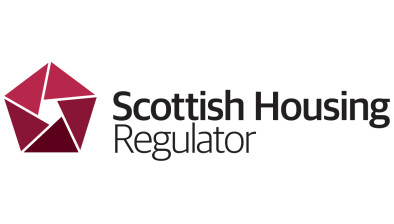RSLs continue to withstand difficult economic and operating conditions

The Scottish Housing Regulator’s annual analysis of the sector’s finance has concluded that the robust financial performance and strong liquidity of Registered Social Landlords (RSLs) mean they remain in a relatively strong position to respond to the significant financial challenges ahead.
The analysis states that RSL turnover increased by 5.5% to £1.90 billion at an aggregate level in the year to 31 March 2022 while operating costs increased by 9.1% to £1.55bn, well above both inflation and average rent increases during the period.
Other highlights during 20201/22 include:
- affordable lettings turnover rose by 3.07% to £1.64bn, contributing 86.27% of total turnover. This includes gross rent receivable & service charges of £1.47bn, a rise of 2.70%;
- planned and reactive maintenance costs rose significantly, rising by 17.63% and 22.94%;
- operating surplus after exceptional items dropped marginally by 2.54% to £380.57m;
- affordable lettings surplus was lower than the prior year as RSLs began to catch up on maintenance and development delayed by the COVID-19 pandemic;
- despite challenges from the pandemic, RSLs continued investing in new and existing homes, with net housing assets up by £860.23m to £14.92bn by 31 March 2022;
- cash balances decreased by £98.40m to £892.22m;
- cash generation from operating activities was down from £626.61m in 2021/22 to £603.38m;
- interest Cover increases in operating margins caused a 23-percentage point reduction in EBITDA MRI interest cover, which was down to 261.39% for 2021/22;
- voids, arrears and bad debts at 31 March 2022 either remained around the previous year’s levels or showed some improvement, demonstrating the positive impact of the work done by RSLs to mitigate these;
- in aggregate, the average rent increase for RSLs rose well below both CPI and RPI. More detailed information can be found in our recent Rent Increases Thematic published in September 2022;
- the number of employees in defined benefit schemes continued to reduce.
Looking ahead, the report highlights that RSLs are looking to deliver on investment in their existing stock, building safety and, decarbonisation and stock quality commitments as well as continuing to invest in building new homes.
Shaun Keenan, assistant director of financial regulation, said: “Despite the many challenges, RSL financial performance was generally robust with turnover up, operating surplus dropping marginally and healthy interest cover. The financial performance in the year was backed up by strong liquidity with total cash and undrawn facilities totalling £1.81 billion as at 31 March 2022.
“The level of economic volatility and uncertainty facing RSLs and their tenants over the reporting period was unprecedented and since 31 March 2022 the complex and uncertain economic environment that RSLs operate in has worsened.
“It will be vital that RSLs are able to adjust their business plans and continue to manage their resources to ensure their financial well-being, while maintaining rents at a level that tenants can afford to pay.”








